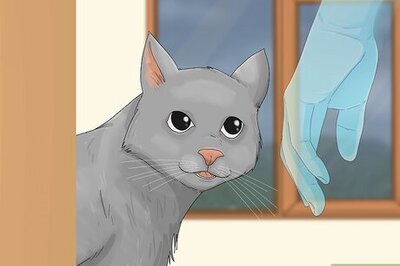
views
HYDERABAD: The proposed IFFCO’s Kisan SEZ in Nellore district has hit a roadblock. The Animal Welfare Board of India (AWBI) has expressed serious concerns over possible violation of rules of the board. In response to a petition filed by Federation of Indian Animal Protection Organisations (FIAPO), AWBI chairman Dr R M Kharb wrote a letter to Paresh Chaudhry of Global Dairy Health India Ltd, raising questions regarding establishment of mega-dairies which are prone to several environmental and animal welfare risks. Global Dairy Health Limited, is an Indian company which is part of the IFFCO consortium. In the letter, AWBI sought details of the project in order to assess the animal welfare implications of the mega dairy. Kharb said he had come to know that the proposed project would be a corporate farm where animals would come under tremendous stress. The animals would be kept at high stocking densities which might result in them contracting diseases which could lead to an increased likelihood of emergence of novel zoonotic diseases.He said that genetically manipulated high yielding cows that are proposed to be in the farm have shortened life span, reduced fertility, greater propensity for diseases, physiological and development problems. Animals kept within an intensive system have a high likelihood of enduring injuries such as leg and foot lameness and mastitis. Imported cows have not adapted to the climate of Nellore and this will increase stress and reduce productivity. Calves may be removed from the mother before natural weaning.Cow slaughter and transportation for slaughter results in additional problems. The management of the amount of animal waste is also a key challenge and often results in degradation of local environment. According to convenor of FIAPO Arpan Sharma, the consortium will import 9,000 high yielding pregnant cows from New Zealand over a three year period. There were also plans to import frozen embryos and semen for subsequent breeding.“As consumers in developed countries are demanding an end to inhumane confinement systems as is proposed in the SEZ, foreign animal production companies are looking to developing countries like India as a dumping ground for such industrial farm animal production,” Arpan Sharma said.“Indian standards lag behind those of some developed nations with progressive animal welfare standards not being implemented by foreign companies in Indian markets. This is unfair to Indian consumers, as most of us would prefer products with high animal welfare standards,” he pointed out.




















Comments
0 comment